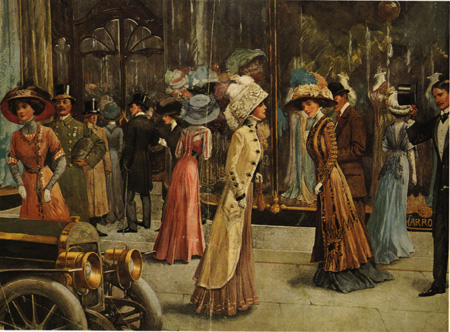Thinking about poverty in terms of human development is an essential shift. Ghettoization happens not only by income, but by social and human capital. This human tendency - our natural association with like-minded peers - reinforces a de facto class hierarchy, in which human development is imposed on individuals from socio-economic circumstance. Social immobility is thus limited not by opportunity so much as by consciousness and familiarity.
At my daughter's public school, in a relatively posh neighborhood, It isn't uncommon to find at a gathering of parents multiple doctors, lawyers, business owners, and other professionals. In a poor neighborhood, you would likely find multiple service industry workers, such as janitors, house cleaners, cashiers, etc. Within this dynamic you find a disparity in human development and skill. Compounded by the practical effects of income on the facilitation of daily life, there is the effect that forms of human capital such as vocabulary, cognition and social knowledge have had on an individual's ability to build self-efficacy and leverage ambition. In aggregate, as groups of individuals with similar levels of capital come together, the network effect is powerfully determinative of a family's ability to achieve and maintain higher levels of social status. Children of these families develop skill-sets largely in accordance with their parents' levels of capital.
Looking back over generations, what you see is a sort of social aristocracy, in which not only income, but human and cultural capital, as well as social capital, is the determinative dynamic in social mobility, or the lack thereof. Society is coming to terms with this, and naturally looking at schools as the most obvious solution. But the problem is much deeper and more complex, and real solutions will require much more than finding so-called "superteachers", able to leap tall fences of human and social capital development in a single bound. What we need are programs like those mentioned in this article, as well as a relentless effort to find innovative ways of building human capital for all. Relying on social aristocracy for human development is the antithesis of freedom.

No comments:
Post a Comment